Characteristics of bitumen varnish and its application
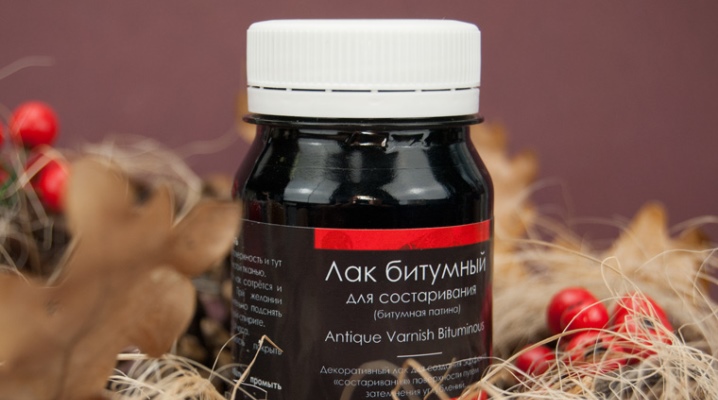
Modern production offers a variety of compositions for coating and protecting various products from the negative effects of natural environmental phenomena. For painting all kinds of surfaces, bituminous varnish is actively used - a specialized composition based on bitumen and polyester resins.
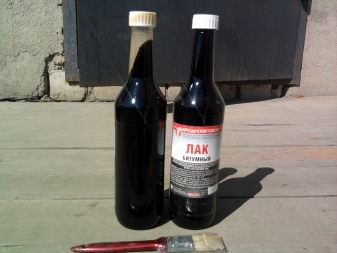
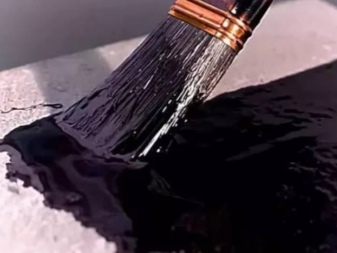
What it is?
Bituminous varnishes vary in quality and composition. In particular, this is influenced by the components used for the manufacture of such products. Among the mechanical characteristics, one can single out its ability to soften and melt under the influence of temperature, in addition, it tends to dissolve only when interacting with organic solvents. According to its physical parameters, such a varnish is a substance with an oily texture, the color of which ranges from brown to transparent. It is quite liquid in texture, therefore, requires care when applying so as not to cover the surface with an excessive amount of varnish. Paints and varnishes are made on vegetable oils, with derivatives of rosin, solvents, harpyus ether.
These are the main components in the composition of bituminous varnishes of any brand. They can also include antiseptic additives and corrosion inhibitors.
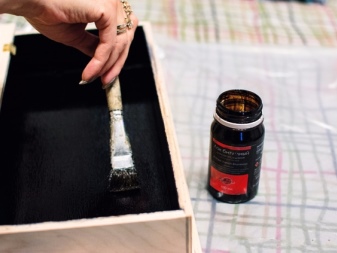
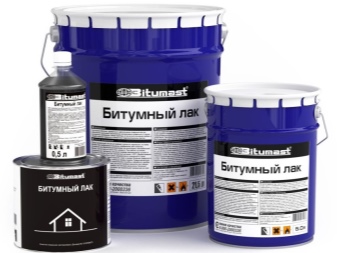
In the production of varnishes, different types of bitumen are used as standard:
-
natural origin - asphalts / asphaltites of different quality;
-
artificial in the form of residual oil products and others;
-
coal (peat / woody pitches).
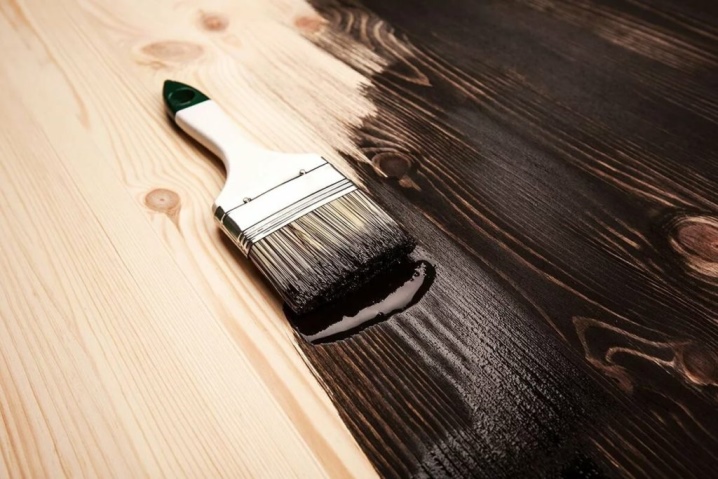
Product labeling and overview
Today bituminous varnish is represented by 40 brands. Several formulations are widely used.
BT-99
Paint and varnish material (LKM), suitable for impregnation and electrical insulation. In addition to the solution of bitumen, alkyd oils and resins, it contains desiccants and other additives. After application, it creates an effective black film. Used for processing windings of electrical equipment. The varnish must first be diluted with toluene or solvent.
Application is carried out with a paint brush, but in some cases, the whole thing is immersed in the varnish.
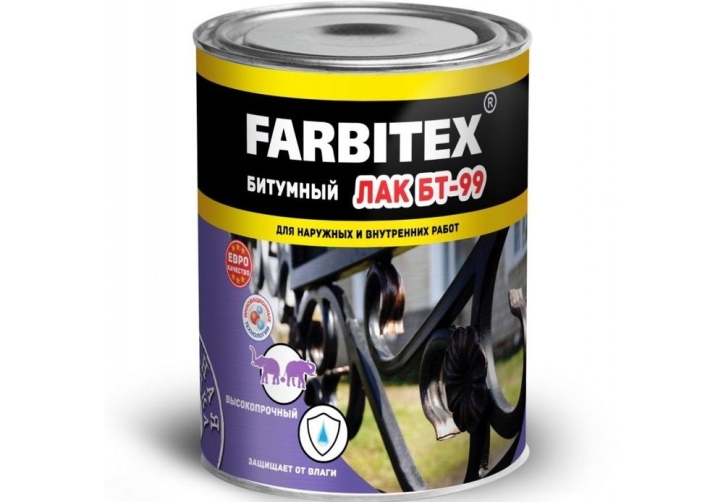
BT-123
Designed to protect metal products from rusting. Provides protection for non-metallic items during transportation under difficult conditions and during long-term storage. The transparent varnish coating does not change its qualities for up to 6 months in temperate climates. BT-123 is used when working with roofing materials and at other stages of construction... The varnish is characterized by resistance to temperature fluctuations, moisture and some chemicals. Coating with varnish of this brand extends the service life of products, gives them strength and glossy shine. The surface is smooth, without pockmarks and bulges.
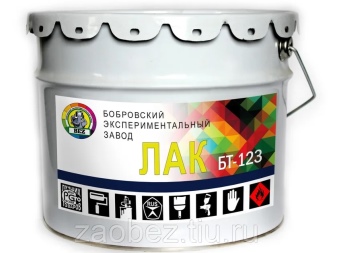
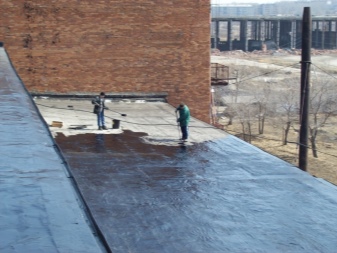
BT-142
The varnish of this brand has a good level of water resistance and protective properties.
Designed for painting metal and wood surfaces.
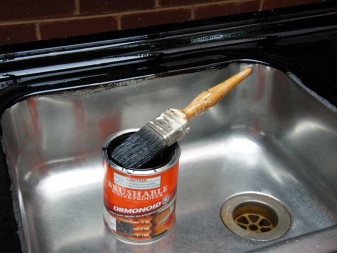
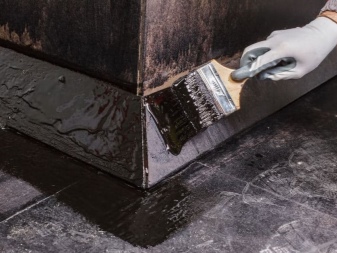
BT-577
For the manufacture of this brand of varnish, bitumen is used mixed with benzene, with the addition of carbon disulfide, chloroform and other organic solvents. The mixture is enriched with modifier substances in the form of polystyrene, epoxy resins, synthetic rubber, rubber crumbs and others. Such inclusions increase product qualities such as elasticity and tensile properties.... This mass also includes components that accelerate the drying and solidification process: wax, vegetable oils, resins and other driers.
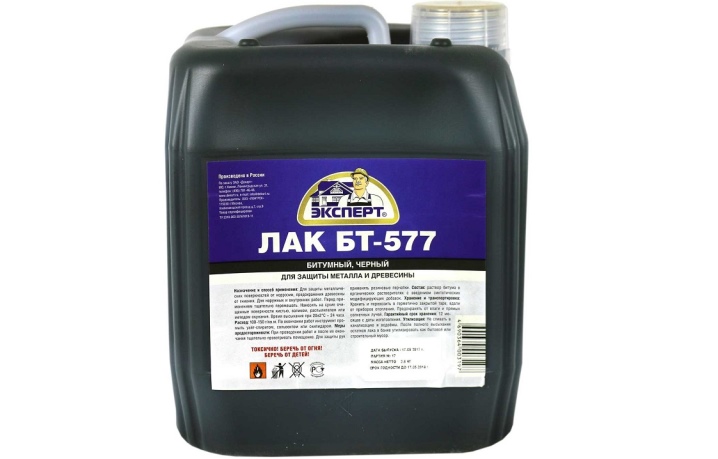
BT-980
This brand is distinguished by a greasy base and a long drying period (12 hours at t 150 ° C).
The working viscosity is imparted to the material by diluting it with a solvent, xylene or a mixture of any of these solvents introduced into white spirit in a 1 to 1 ratio.
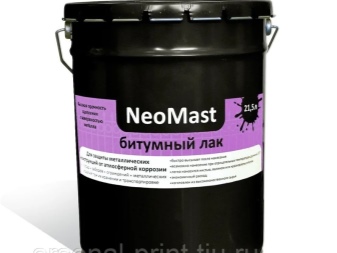
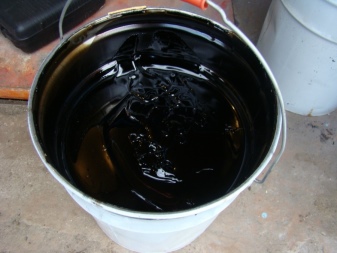
BT-982
Decent electrical insulating properties are also demonstrated by the varnish of this brand. It is used to treat electric motors and as an anti-corrosion coating for other things.
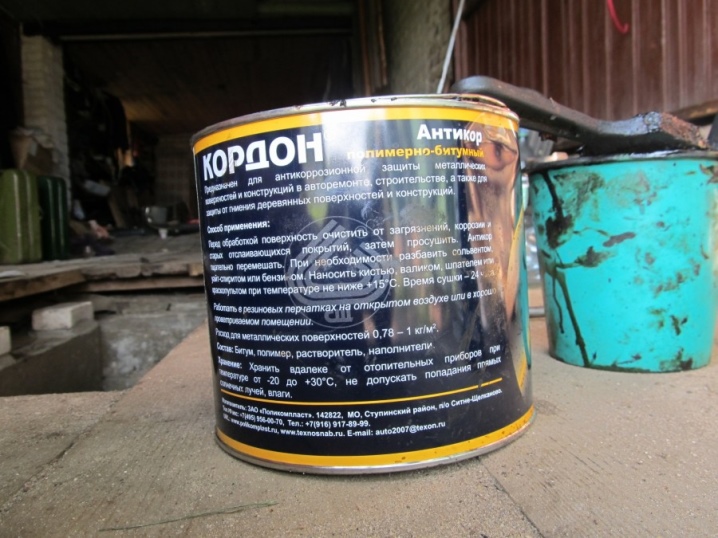
BT-5101
Fast drying varnish. It is mainly used as a decorative and anti-corrosion coating for metal or wood surfaces. Before work, it is necessary to withstand the varnish for 30-48 hours... Drying at 20 ° C for about 2 hours.
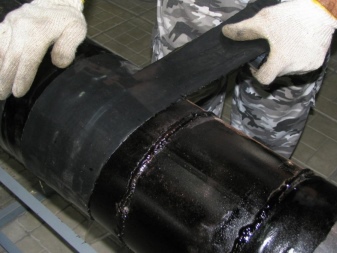
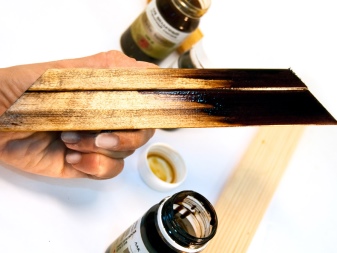
BT-95
Oil-bitumen adhesive varnish widely used as electrical insulation. And also it is used as an adhesive in the production of mica tape. At the manufacturing stage, vegetable oils are added to it.
The material is dissolved with white spirit, xylene, solvent or a mixture of these agents.
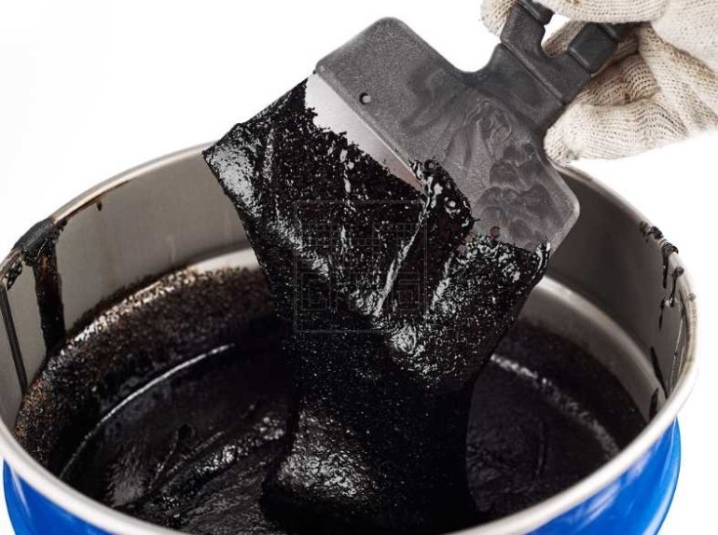
BT-783
This brand is a solution of petroleum bitumen with vegetable oils, with the inclusion of desiccants and organic solvents as additives. A product for a specific purpose - they are comprehensively coated with batteries to protect them from sulfuric acid. The result is an elastic, durable, hard coating that is resistant to temperature extremes. It is applied by spraying or brushing, thinned with standard mineral spirits or xylene. Time to complete drying - 24 hours, in the working space during application, a temperature of + 5 ... +35 degrees is allowed.
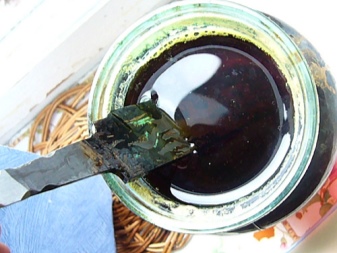
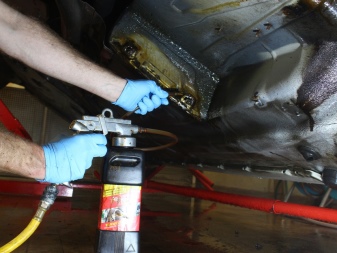
What is it used for?
Today, bitumen-based varnish is available in different brands and is used to process a variety of materials. LKM is in high demand for wood processing. It is suitable for imparting the necessary physical and chemical properties to a wooden surface for further use. In this case, it is thinly applied, or an object is lowered into it and then dried. It is also used as a top coat for concrete, brick and metal.
Bituminous varnish provides an optimal degree of coverage, it is quite easy to apply with a brush, roller, through a spray... The layer is uniform and neat, there are no drips. The consumption of the product depends on what kind of material is to be processed. On average, covering 1 sq. m of material requires about 100-200 ml.
The bitumen varnish must be dried after application. How long it will take, the manufacturer indicates in the instructions directly on the container. On average, final curing and hardening can be expected after 20 hours.
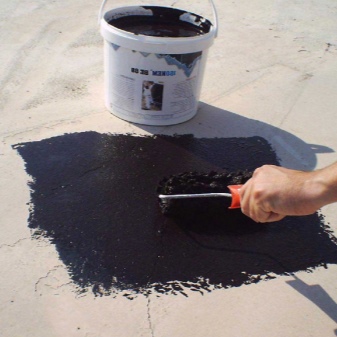
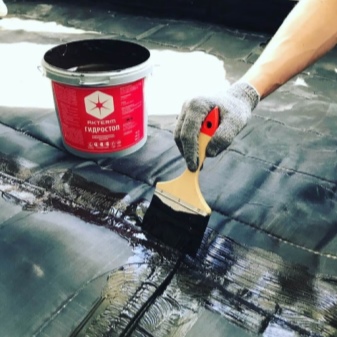
Bituminous paintwork materials in everyday life are suitable for various purposes.
-
To protect metallic materials from rusting. There are many ways to combat rust, which affects most types of metal. Varnishing is definitely a working solution. The varnish is spread over the metal in a minimal layer, preventing contact of the surface with moisture or air. This varnish is ideal for outdoor applications, for example, the condition of the metal depends on how the fence is painted. If you cover it with varnish, it will last much longer in its original form.
-
The second purpose of paintwork materials determines its adhesiveness. The varnish exhibits good adhesion to a range of surfaces and helps to bond certain materials. Due to this, in different situations it is used as an adhesive. Often this method of gluing is used in the construction industry when installing roofing materials. At the same time, it is more reasonable and profitable to economically use the method of cold bonding with bitumen varnish.For example, when compared with hot gluing bitumen, the use of paintwork materials from the point of view of safety prevents a possible fire.
-
The third purpose of the bitumen varnish is to make surfaces resistant to moisture. Often they are treated with wooden surfaces, preventing them from getting wet. As a result, the moisture resistance of the item is increased and it lasts longer. Such a composition serves as a reliable waterproofing for a fairly long period of time for structures and premises such as swimming pools, garages, basements or cellars.
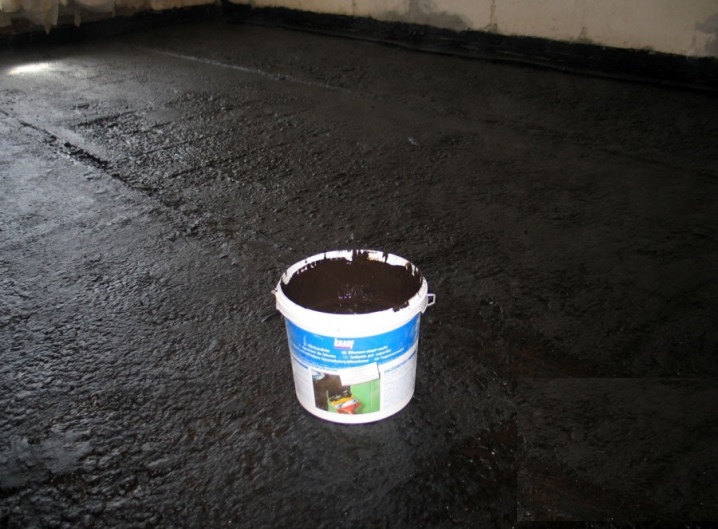
There are many areas where this material is successfully applied. The bituminous composition is widespread due to its affordable price and acceptable composition. Moreover, this product is ideal for decorating all kinds of surfaces. Varnish is in demand in decoupage, and some brands give materials a glossy shine, while others are designed to imitate antiquity. The thing processed by him gives the visual impression of being old.
Paint and varnish with brown pigment is suitable for fiberboard and tree cuts, as it gives the material an attractive tone. However, the varnish made on the basis of bituminous components is versatile and suitable for many industrial processes and everywhere in everyday life. But it remains suitable only if stored properly. The product should be stored under a lid, tightly closed, at a room temperature of + 30 ° C and not exceeding + 50 ° C. It is important to protect the material from direct sunlight.
Currently, bitumen varnishes are produced by numerous manufacturers. Various components are used for manufacturing. Therefore, the composition of varnishes on bitumen may not be suitable for GOST. In the original version of paintwork materials, natural resins and bitumen are used.
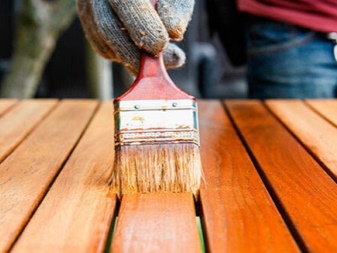
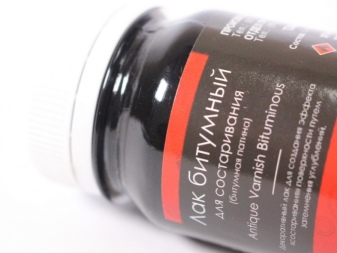
Safe work rules
It must be remembered that this type of varnish belongs to explosive substances. Rough handling can result in fire and injury. Work with this product should be carried out in the air or in a sufficiently ventilated place. Do not smoke when painting with varnish. If the varnish has got on the skin, it must be wiped off with a piece of cloth or a damp cloth, soaped and thoroughly rinsed with water.
If varnish gets into the eye, it is fraught with sad consequences. In such a situation, it is important to promptly rinse the mucous membrane with water. After that, you need to see an ophthalmologist.
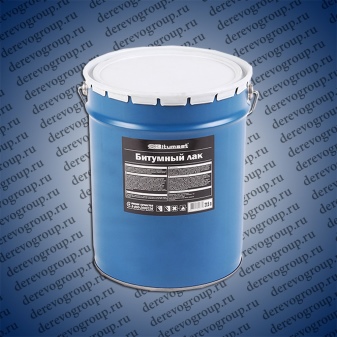
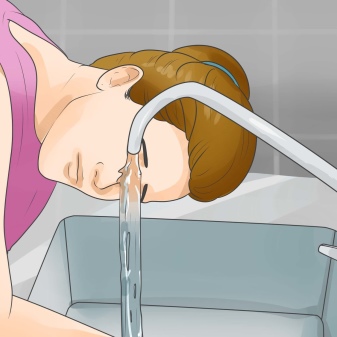
For complete safety, it is recommended to paint with varnish, put on a special suit and protect your eyes with special glasses, and your hands with thick gloves. In case of accidental ingestion of paintwork material into the stomach, you must immediately go to the hospital. In such a situation, it is forbidden to induce vomiting in the victim.
It is necessary to use a bitumen-type varnish according to the instructions on the package. Observe the recommended drying time. Dilute only as directed. Bituminous varnish is definitely a staining compound. Leaving easily soiled spots on garments and leather, the varnish is removed by processing with gasoline. And also white spirit is suitable for this. The container with the varnish should be kept away from fire to avoid heating it. Expired varnish is not suitable for use. It must be recycled.
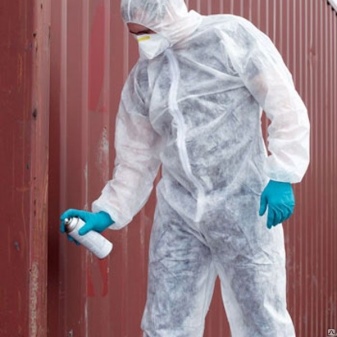
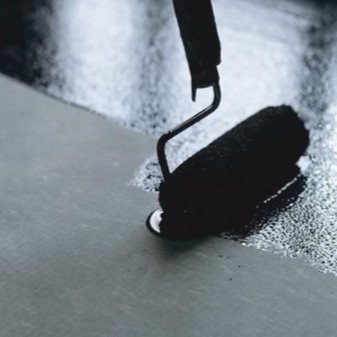













The comment was sent successfully.